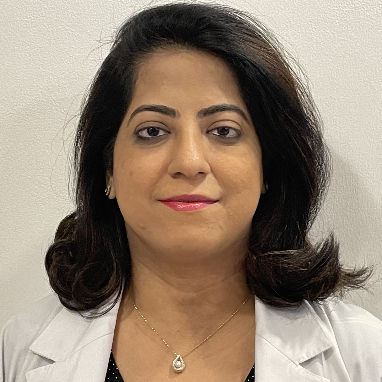Your Guide to Clear Skin; How to Avoid Acne During Pregnancy
Discover safe skincare tips, ingredients to avoid, and lifestyle changes to prevent and manage acne during pregnancy. Stay confident and comfortable in your skin.

Written by Dr. J T Hema Pratima
Reviewed by Dr. Rohinipriyanka Pondugula MBBS
Last updated on 13th Jan, 2026

Introduction
Pregnancy is a beautiful journey, but it often comes with unexpected side effects, and acne is one of the most common. As your body works miracles to grow your baby, hormonal fluctuations can throw your skin for a loop, even if you’ve never had a pimple before. You’re not alone in this; many expectant mothers struggle with pregnancy-related breakouts. The good news is that you can manage and even avoid acne during pregnancy with a smart, safe approach. This comprehensive guide will walk you through the why behind pregnancy acne and, more importantly, the how—how to build a safe skincare routine, which ingredients to embrace, which to avoid completely, and how lifestyle choices can make a significant difference. Our goal is to empower you with knowledge so you can feel confident and comfortable in your skin throughout this special time.
Why Pregnancy Often Triggers Acne
Understanding the root cause is the first step to effective prevention. While it might feel like a step back to your teenage years, pregnancy acne has a very specific set of triggers directly linked to supporting your growing baby.
The Hormonal Rollercoaster: Androgens and Progesterone
The primary driver of pregnancy acne is the surge in hormones, particularly progesterone. Early in pregnancy, progesterone levels rise significantly to maintain the uterine lining. Later, the placenta produces large amounts. Progesterone has an androgenic (male hormone-like) effect, which stimulates the sebaceous glands in your skin to produce more sebum (oil). This excess oil can mix with dead skin cells and bacteria, clogging pores and leading to breakouts. This is why you might experience hormonal acne during pregnancy along your jawline, chin, and cheeks—a classic pattern for hormonally-driven breakouts.
Increased Blood Flow and Oil Production
Pregnancy increases your blood volume by nearly 50% to support the placenta and your baby. This increased circulation can make your skin appear flushed and "glowing," but it also delivers more blood to the skin’s oil glands, further encouraging them to become more active. The combination of hormonal signals and increased resources creates a perfect environment for acne to flourish.
Is Pregnancy Acne Different by Trimester?
Many women find that breakouts are most prominent during the first trimester when hormone levels are rapidly adjusting. For some, skin may clear up in the second trimester as the body adapts. However, others may experience persistent acne throughout pregnancy. There's no one-size-fits-all pattern, but being prepared for early onset can help you start a preventative routine right away.
Building Your Pregnancy-Safe Skincare Arsenal
Navigating skincare while pregnant can feel daunting, but the philosophy is simple: gentle, effective, and safe. The key to avoid acne during pregnancy is consistency with the right products.
Health topic carousel:
Doctor's speciality: Gynaecology
Text: Consult an Gynaecologist for the best advice
The Golden Rule: Gentle Cleansing
Harsh, stripping cleansers can aggravate acne by signalling your skin to produce even more oil to compensate. Opt for a gentle, fragrance-free, and soap-free safe face wash for pregnancy acne. Look for formulations with calming ingredients like ceramides or niacinamide. Wash your face twice daily—morning and night—and after sweating.
Safe and Effective Topical Ingredients
Not all acne fighters are off-limits. Several ingredients are considered safe and highly effective.
Azelaic Acid: The Gold Standard
Azelaic acid is a superstar in pregnancy-safe skincare. It’s antimicrobial, anti-inflammatory, and helps to unclog pores. It’s effective against red, inflamed spots and is often prescribed by dermatologists because of its excellent safety profile. You can find it in over-the-counter serums (typically up to 10% concentration) or by prescription (15-20%).
Glycolic Acid and Lactic Acid
These alpha-hydroxy acids (AHAs) are excellent for gentle exfoliation. They help slough off dead skin cells that can clog pores, improving skin texture and tone. They are water-soluble, meaning they don't penetrate deeply into the skin, making them a safer choice compared to some other chemical exfoliants.
Niacinamide for Calming Inflammation
Niacinamide (Vitamin B3) is a fantastic all-rounder. It helps regulate oil production, reduces redness and inflammation, and strengthens the skin's barrier. Incorporating a niacinamide serum into your routine can be a gentle yet powerful way to keep breakouts at bay.
The Non-Negotiable: Moisturising and Sun Protection
It may seem counterintuitive to moisturise oily, acne-prone skin, but it’s essential. A good, non-comedogenic moisturiser (meaning it won't clog pores) helps maintain your skin’s barrier health, preventing irritation that can worsen acne. Similarly, a broad-spectrum mineral sunscreen (with zinc oxide or titanium dioxide) is crucial. Some acne treatments can increase sun sensitivity, and pregnancy can sometimes cause melasma (the "mask of pregnancy"), which is aggravated by UV exposure.
Ingredients to Avoid Completely During Pregnancy
Your baby’s health is the top priority, so certain potent ingredients must be avoided. When in doubt, always consult your obstetrician or a dermatologist.
The Retinoid Red Alert (Oral and Topical)
This is the most critical category. Avoid retinoids completely. This includes oral medications like Isotretinoin (Accutane), which is known to cause severe birth defects. It also includes topical retinoids like tretinoin, adapalene, and retinol. While the systemic absorption of topical retinoids is low, the risk is considered too great to justify their use during pregnancy.
High-Dose Salicylic Acid and Other Concerns
Salicylic acid is a beta-hydroxy acid (BHA) common in acne treatments. While low-dose (typically under 2%) topical formulations in wash-off products (like cleansers) are generally considered acceptable by many doctors, high-dose leave-on treatments and oral salicylic acid should be avoided due to potential links to complications. A safer bet is to avoid it altogether or use it very sparingly after consulting your doctor. Other ingredients to approach with caution include phthalates (often in fragrances) and hydroquinone (a skin-lightener).
Lifestyle Tweaks for Prevention from the Inside Out
Skincare is only one piece of the puzzle. Supporting your body from the inside can have a profound impact on your skin.
Diet and Hydration: Fact vs. Fiction
While there's no single "acne-causing" food, a balanced diet rich in antioxidants, zinc, and omega-3 fatty acids can support skin health. Focus on whole foods: fruits, vegetables, lean proteins, and whole grains. The most crucial dietary factor is hydration. Drinking plenty of water helps flush out toxins and keeps your skin hydrated from within, which can help prevent pregnancy acne.
Stress Management and Sleep Hygiene
Pregnancy is stressful, and stress increases cortisol levels, which can exacerbate acne. Prioritise sleep as much as possible and incorporate stress-reducing activities like prenatal yoga, meditation, or gentle walks. Taking care of your mental well-being is a direct investment in your skin’s health.
When to Seek Professional Help
If your acne is severe, painful, cystic, or doesn't respond to over-the-counter pregnancy-safe skincare after a few weeks, it's time to seek help. If your condition is causing significant distress or you suspect scarring, consult a dermatologist online with Apollo24|7 for a professional evaluation. They can prescribe stronger, pregnancy-safe treatments and provide personalised advice. Remember, you don't have to suffer through it.
Conclusion
Navigating skin changes during pregnancy requires a shift in strategy, but achieving clear skin is entirely possible. By understanding the hormonal causes, adopting a consistent routine built on pregnancy-safe ingredients like azelaic acid and niacinamide, and being vigilant about what to avoid (especially retinoids), you can effectively manage breakouts. Remember to support your skincare efforts with healthy lifestyle choices—staying hydrated, eating well, and managing stress are just as important as the products you use. Most importantly, be kind to yourself. Your body is doing incredible work. If you ever feel overwhelmed by pregnancy acne, don't hesitate to seek professional guidance. With the right approach, you can feel confident and radiant throughout your pregnancy journey.
Frequently Asked Questions (FAQs)
When does pregnancy acne usually start?
Pregnancy acne can begin as early as the first few weeks of pregnancy, often peaking during the first trimester when hormonal fluctuations are most dramatic. However, it can appear or worsen at any point.
Are there any natural remedies for pregnancy acne?
Some women find relief with gentle, natural options like raw honey (a mild antimicrobial) or aloe vera gel (soothing and anti-inflammatory). However, their effectiveness is variable. It's crucial to patch-test first and remember that "natural" doesn't always mean safe or effective for everyone.
Will my pregnancy acne go away after I give birth?
For most women, yes. Hormone levels typically normalise after delivery and especially after breastfeeding ends, leading to a significant clearing of acne. However, some women may experience persistent postpartum acne due to ongoing hormonal shifts.
Is it safe to pop pimples during pregnancy?
It is strongly discouraged. Popping pimples can push bacteria deeper into the skin, increase inflammation, and lead to scarring. Pregnancy skin can also be more sensitive and prone to hyperpigmentation (dark spots) after injury.
Can I use my usual acne products while pregnant?
You must review all your products carefully. Discontinue any containing retinoids, high-dose salicylic acid, or other questionable ingredients. When in doubt, set them aside and consult a doctor online with Apollo24|7 for personalised advice on your specific products.
Health topic carousel:
Doctor's speciality: Gynaecology
Text: Consult an Gynaecologist for the best advice
Consult Top Specialists for Personalised Tips

Dr Jaya Kumar Agarwal
Obstetrician and Gynaecologist
25 Years • MBBS , DGO , DNB (obstetric and gynecology) DGE diploma in Gyne endoscopy (Germany )
Delhi
Apollo Hospitals Indraprastha, Delhi

Dr. Asawari Kesari Kapoor
Obstetrician and Gynaecologist
23 Years • M.B.B.S, D.G.O(Mumbai) ,D.G.O (C.P.S), D.N.B (OBGY)
Delhi
Apollo Hospitals Indraprastha, Delhi
(25+ Patients)

Dr Asna Zehra Naqvi
Obstetrician and Gynaecologist
10 Years • MS (Obs. & Gynae), MRCOG, Diploma in IVF & Reproductive Medicine
Lucknow
Apollomedics Super Speciality Hospital, Lucknow

Dr Abdul Basith
Infertility Specialist
15 Years • MBBS & MD (OG) & MRCOG in UK & PD-FRM
Chennai
Apollo Women Hospitals Thousand Lights, Chennai
(25+ Patients)

Dr. Karuna Ratwani
Obstetrician and Gynaecologist
11 Years • MBBS, MS( Obstetrics & Gynaecology), F.MAS, FICRS Advanced Diploma in Minimal Access surgery Fellow of International College of Robotic Surgeons Diploma in Reproductive Medicine, Kiel-Germany Masters in Cosmetic Gynaecology , Greifswald-Germany Masterclass in Obstetrics & Gynaecology Ultrasound ( ISUOG, UK)
Delhi
Apollo Hospitals Indraprastha, Delhi
(25+ Patients)
Consult Top Obstetrics and Gynaecology

Dr Jaya Kumar Agarwal
Obstetrician and Gynaecologist
25 Years • MBBS , DGO , DNB (obstetric and gynecology) DGE diploma in Gyne endoscopy (Germany )
Delhi
Apollo Hospitals Indraprastha, Delhi

Dr. Asawari Kesari Kapoor
Obstetrician and Gynaecologist
23 Years • M.B.B.S, D.G.O(Mumbai) ,D.G.O (C.P.S), D.N.B (OBGY)
Delhi
Apollo Hospitals Indraprastha, Delhi
(25+ Patients)

Dr Asna Zehra Naqvi
Obstetrician and Gynaecologist
10 Years • MS (Obs. & Gynae), MRCOG, Diploma in IVF & Reproductive Medicine
Lucknow
Apollomedics Super Speciality Hospital, Lucknow

Dr Abdul Basith
Infertility Specialist
15 Years • MBBS & MD (OG) & MRCOG in UK & PD-FRM
Chennai
Apollo Women Hospitals Thousand Lights, Chennai
(25+ Patients)

Dr. Karuna Ratwani
Obstetrician and Gynaecologist
11 Years • MBBS, MS( Obstetrics & Gynaecology), F.MAS, FICRS Advanced Diploma in Minimal Access surgery Fellow of International College of Robotic Surgeons Diploma in Reproductive Medicine, Kiel-Germany Masters in Cosmetic Gynaecology , Greifswald-Germany Masterclass in Obstetrics & Gynaecology Ultrasound ( ISUOG, UK)
Delhi
Apollo Hospitals Indraprastha, Delhi
(25+ Patients)
